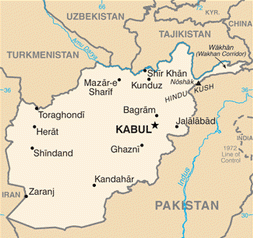Pakistan has decided to release nine Taliban prisoners who favor entering into negotiations with the US-backed regime in Afghanistan in the name of a political settlement to end the conflict.
 “Salahuddin Rabbani, the head of the High Peace Council who led a delegation to Islamabad this week, said Pakistan’s prisoner release marked a shift in the neighboring country’s policy,” reports the Associated Press. “In the past, the Pakistanis have arrested Taliban figures interested in peace talks with the Afghan government, he said, but now the government is releasing them and pledging to give them safe passage to negotiations.”
“Salahuddin Rabbani, the head of the High Peace Council who led a delegation to Islamabad this week, said Pakistan’s prisoner release marked a shift in the neighboring country’s policy,” reports the Associated Press. “In the past, the Pakistanis have arrested Taliban figures interested in peace talks with the Afghan government, he said, but now the government is releasing them and pledging to give them safe passage to negotiations.”
This is a continuation of Pakistan’s slow and careful turn towards reaching out diplomatically to some of its traditional enemies in Afghanistan with and eye towards negotiations.
Islamabad has always supported the Afghan Taliban, especially as a hedge against foreign influence and to counter the sway of its arch nemesis India.
Pakistan still does see the Taliban as a worthwhile proxy, but not an entirely reliable one. One quirk of this strategic relationship is that Taliban-allied groups inside Pakistan view Islamabad as their enemy.
“A Taliban victory on the other side of the border would give a huge boost to domestic militants fighting the Pakistani state,” journalist Zahid Hussain told the Associated Press last month.
“These concerns have led Pakistan to the conclusion that a peace agreement that includes all Afghan groups is in its best interests,” AP reported experts as saying.
It is possible that recent improvements, from historic lows last year, in the US-Pakistan relationship are influencing Islamabad towards this policy shift. But these moves are only preliminary, and many experts continue to warn the US-baked Kabul government is too weak, and the country primed for civil war, once the Americans draw down forces in 2014.


